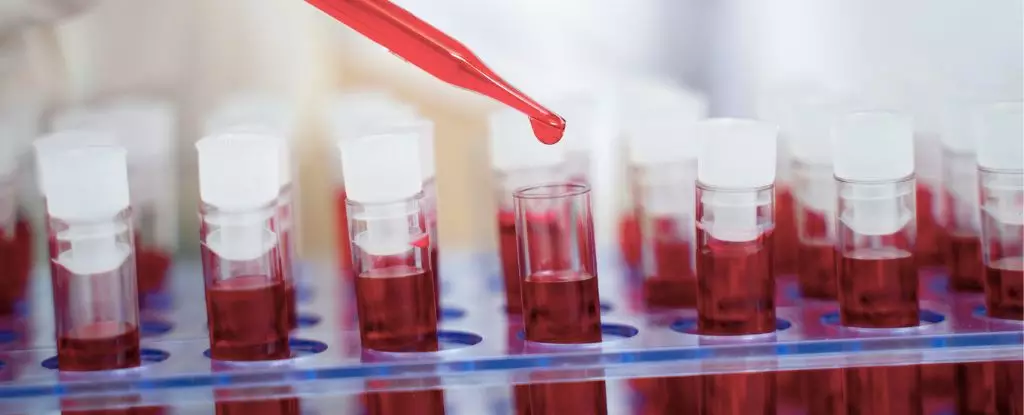A groundbreaking study conducted by scientists has unveiled a significant advancement in identifying individuals at higher risk of suicidal behavior. Utilizing biological markers found in the participants’ blood, researchers were able to diagnose major depressive disorder (MDD) and suicidal ideation with an impressive accuracy rate of about 90%. This exciting development offers a potential lifeline for those who suffer from treatment refractory major depressive disorder (tr-MDD) and aims to enhance treatment response and prevention of suicide.
Traditionally, the symptoms of major depressive disorder have been examined solely from a psychological standpoint. However, recent research has illuminated a compelling connection between depression and metabolic diseases. Inflammatory markers have emerged as a focal point of investigation, as they offer potential targets for new drug treatments. The intersection of metabolomics and mental health is providing scientists with invaluable insights into the biochemistry of depression, allowing them to listen in on cells’ conversations.
By meticulously measuring a whopping 448 metabolites, the study identified a handful of metabolites that displayed a substantial correlation with depression and suicidal ideation. It was observed that select individuals suffering from tr-MDD showcased deficiencies in key blood metabolites. For instance, metabolites such as carnitine, CoQ10, folic acid, citrulline, vitamin D, and lutein were found to be significantly lower in individuals with suicidal ideations. These metabolites play pivotal roles in cellular energy production, gene expression, toxin removal, calcium absorption, and have anti-inflammatory properties, respectively.
The study also recognized biomarkers such as lactic acid and fibroblast growth factor 21 (FGF21) linked to mitochondrial stress, to be elevated among those with suicidal ideations. Intriguingly, the research overturned the common belief that oxidative stress is the primary factor contributing to depression. Instead, it identified a phenomenon referred to as “reductive” stress, characterized by the ramped-up metabolism of a cell due to decreased production of reactive oxygen species by the mitochondria. This disrupted cellular energy balance and led to an overflow of ATP, the energy source for cells. Researchers hypothesize that suicide attempts may arise as a physiological impulse to halt an overwhelming cellular stress response.
The investigation shed light on the role of purine metabolites in individuals with suicidal ideation. The study revealed that these markers were decreased among those experiencing suicidal thoughts. Notably, excessive purine production is associated with self-injurious behavior in Lesch-Nyhan syndrome, a rare neurogenetic disorder. While further research is necessary to fully confirm the blood markers relevant to suicidal ideation, the study’s findings represent a significant step towards understanding the physiological basis of mental health issues.
The discovery of these biological markers opens up new possibilities for personalized mental health diagnosis and treatment. Armed with the knowledge of specific blood metabolites associated with suicidal behavior, healthcare professionals can better identify those at high risk and implement targeted interventions. Although the identified metabolites are not a definitive cure for depression, they offer valuable insights into nudging metabolism in the right direction for improved response to treatment. Ultimately, this advancement aims to provide a crucial line of defense for individuals grappling with mental health challenges, potentially saving countless lives in the process.


Leave a Reply